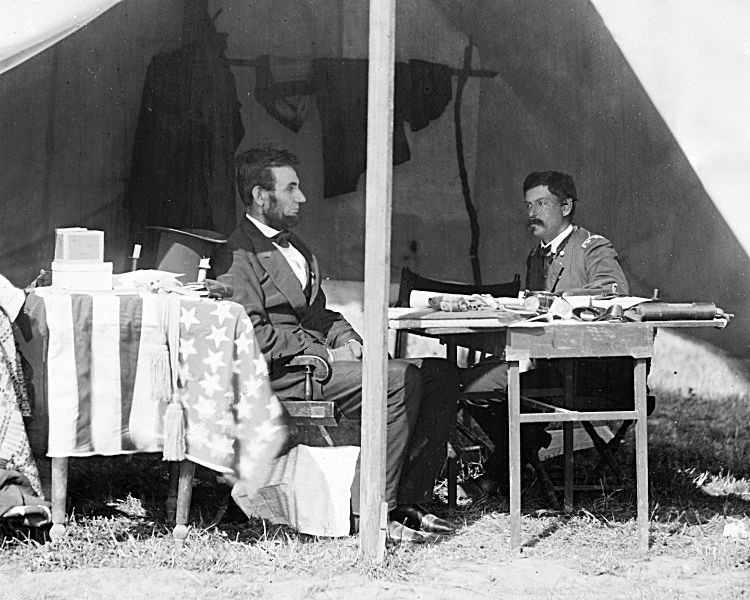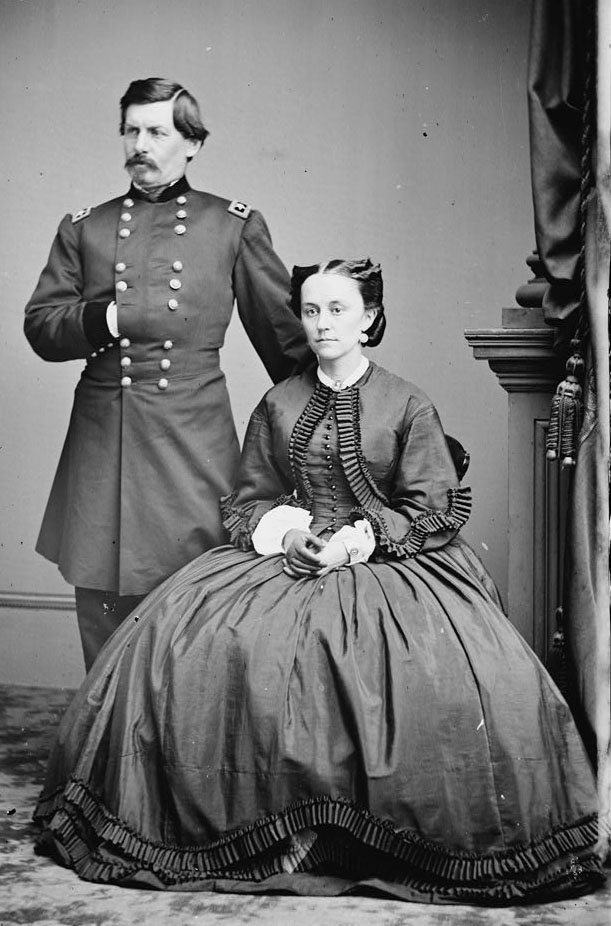 |
| Lincoln and McClellan |
But Lincoln decided to give McClellan one last chance. Because of the position of the armies, it appeared that the Federals had the chance, if they moved quickly, to get between Lee and Washington, forcing a battle on ground of the Yankee's choosing. However, McClellan failed yet again. Scouts reported that the Confederates had successfully blocked McClellan's road to Richmond. It was time for McClellan to go.
 |
| Burnside |
Lincoln's order said:
By direction of the President, it is ordered that Major-General McClellan be relieved from the command of the Army of the Potomac, and that Major-General Burnside take the command of that army. Also that Major-General Hunter take command of the corps in said army which is now commanded by General Burnside. That Major-General Fitz John Porter be relieved from the command of the corps he now commands in said army, and that Major-General Hooker take command of said corps.He wrote this on November 5th, after the midterm elections, when the Democrats had gained more seats in the House, and the Republicans in the Senate. The message was delivered early on the 7th, two days later.
The man chosen to deliver the message was Brigadier General Catherinus Buckingham, who was working at the War Department. He was entrusted with the task of giving McClellan the message informing him of his removal from command, and another to Ambrose Burnside to convince him to take the post. Buckingham went first to Burnside, who was completely shocked and immediately refused. Burnside said he didn't want the command and did not think he was fit for it. In fact, he had refused it twice before, and McClellan was a friend of his. Finally, after over an hour of discussions, Buckingham was able to convince him to accept the command.
 |
| Lincoln and his generals after Antietam |
McClellan accepted the order removing him of command with little emotion. There was always some danger that the general being removed, especially one so well loved by the troops as McClellan, would try to stage a rebellion. McClellan would not do that. He would obey the orders from Washington. However, he did not believe he had made any mistakes warranting his removal from command. He wrote to his wife:
They have made a great mistake. Alas for my poor country! I know in my inmost heart she never had a truer servant. I have informally turned over the command to Burnside, but shall go to-morrow to Warrenton with him, and perhaps remain a day or two there in order to give him all the information in my power... Do not be at all worried - I am not. I have done the best I could for my country; to the last I have done my duty as I understand it. That I must have made many mistakes I cannot deny. I do not see any great blunders; but no one can judge of himself. Our consolation must be that we have tried to do what was right; if we have failed it was not our fault.
 |
| McClellan and his wife |


0 comments:
Post a Comment